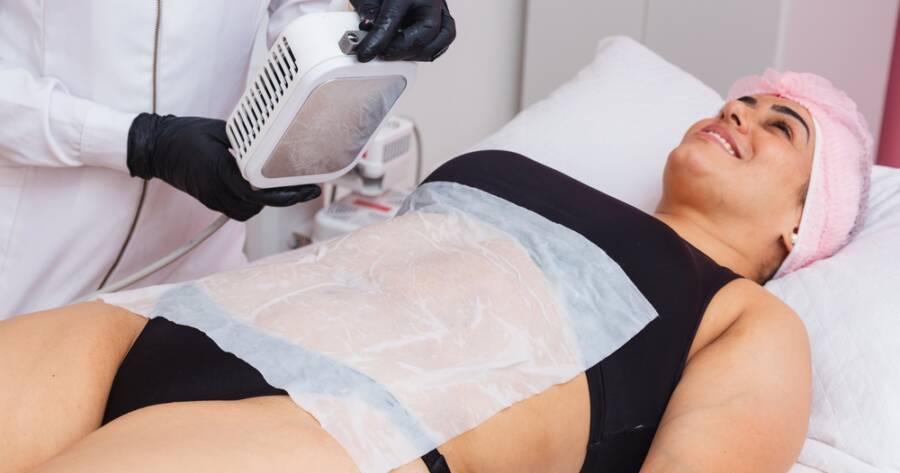Undergoing fat removal surgery, such as liposuction, can be a significant financial investment. However, participating in clinical trials offers a cost-effective avenue to access these procedures. Clinical trials are research studies that test new medical techniques or devices to ensure their safety and effectiveness. By enrolling in such trials, individuals can receive cutting-edge treatments at reduced or no cost while contributing to medical advancements.
Understanding Laser Fat Removal Surgery
Laser fat removal, also known as laser lipolysis, involves using laser technology to target and eliminate fat cells. This minimally invasive technique offers an alternative to traditional liposuction and has been gaining popularity due to its potential for quicker recovery times and reduced scarring. Patients may seek laser fat removal for various areas of the body, such as the abdomen, thighs, and arms.
During the procedure, a laser device emits light energy to heat and disrupt fat cells, which the body may then metabolize naturally. While some patients report satisfactory results, individual outcomes can vary based on factors such as body type, lifestyle, and the specific technology used. It’s essential for potential candidates to thoroughly research and consider their options before proceeding.
The Role of Clinical Trials
Clinical trials play a crucial role in advancing medical procedures, including laser fat removal. These trials aim to assess the safety and efficacy of new technologies and techniques under controlled settings. Participants in clinical trials typically have access to innovative treatments at reduced costs or sometimes even at no expense, as they are contributing to important research.
Trials are often conducted by medical institutions, research organizations, or cosmetic companies seeking to gather data on new devices or methodologies. Interested candidates may need to meet specific eligibility criteria and provide informed consent to participate. The benefits may include receiving state-of-the-art treatment and closely monitored care throughout the trial period.
Finding Suitable Clinical Trials
Locating suitable clinical trials for laser fat removal involves several steps. Interested individuals can start by exploring reputable clinical trial registries online. Websites like ClinicalTrials.gov offer comprehensive listings of ongoing and upcoming trials worldwide. It’s crucial to verify the legitimacy and credentials of the conducting organization to ensure a safe and ethical experience.
Consulting with healthcare professionals or cosmetic surgeons may also be beneficial, as they might have information about local trials or partnerships with research institutions. Joining forums or support groups related to body contouring can provide additional insights from individuals who have participated in similar trials.
Careful scrutiny of each trial’s details is essential, as conditions, requirements, and potential risks can vary significantly. Taking the time to gather information and ask questions ensures a well-informed decision-making process.
Evaluating Risks and Benefits
Participating in a clinical trial comes with its own set of risks and potential benefits. On the positive side, trials might offer reduced costs or free access to treatments that are not yet widely available. Participants may receive expert medical attention, monitoring, and follow-up, which can contribute to a secure treatment experience.
However, risks can include unforeseen side effects or outcomes due to the experimental nature of the treatment. It’s important for participants to thoroughly discuss these factors with the trial organizers and understand the consent process. Transparency about what to expect can help mitigate concerns and prepare individuals for the experience.
Preparing for Participation
Preparation is key when considering joining a clinical trial for laser fat removal. Initial steps may include a detailed consultation with the trial organizers to discuss eligibility and any pre-procedural requirements. Participants might also undergo medical evaluations to ensure their suitability for the trial.
Once accepted, staying informed about trial schedules and commitments is important. Participation could require multiple visits, follow-up appointments, or ongoing documentation. Maintaining open communication with trial coordinators ensures that participants are aware of any changes or updates.
Researching the specific technology or technique being tested can also be beneficial. Understanding how it differs from existing methods and what outcomes are anticipated empowers participants to engage actively in their treatment journey.
Learn More Today!
Clinical trials for laser fat removal surgery might offer a promising option for those seeking cost-effective procedures while contributing to medical research. By carefully evaluating potential trials, understanding risks, and preparing diligently, individuals could access innovative treatments at reduced costs. While outcomes are not guaranteed, participants may find value in the experience and its potential benefits for body contouring advancements.

